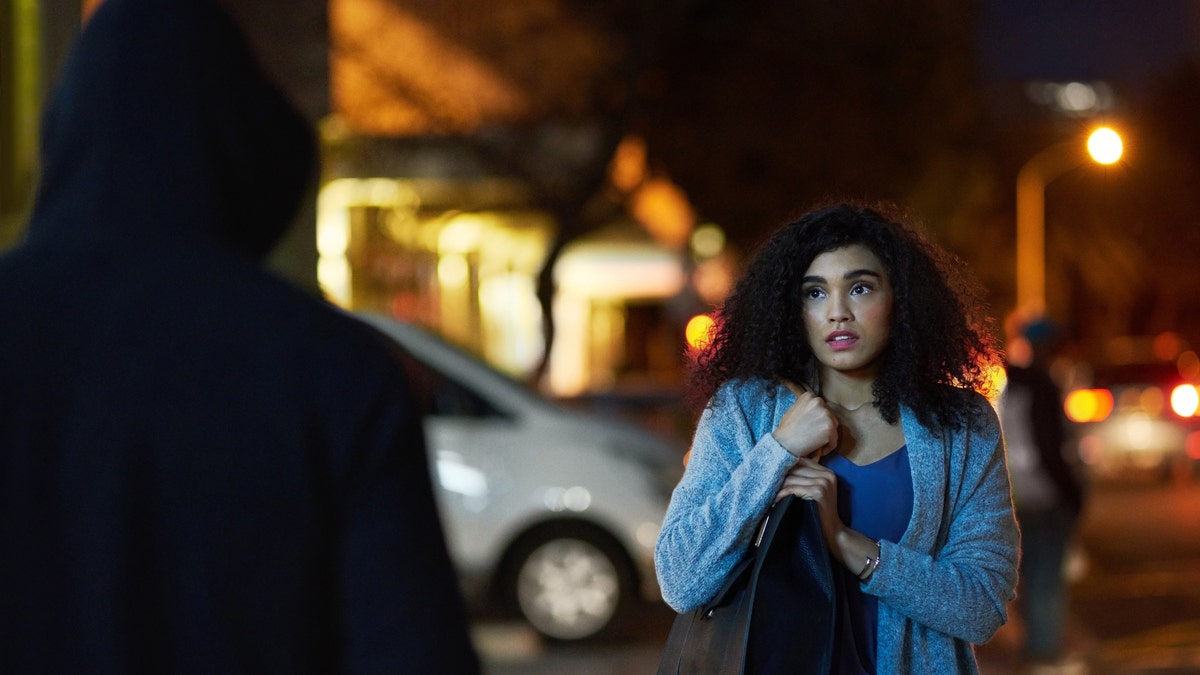Residents of Hartford, Connecticut, turn to armed group to defend against violent crime
The Self-Defense Brigade is made up of around 40 armed citizens who patrol the streets wearing body cameras.
Crime happens year round, but violent crime tends to spike during the summer months.
According to a 2014 report by the U.S. Department of Justice (DOJ), there were seasonal trends found in violent crime that happened over close to two decades, with more people falling victim to violent acts during June, July and August.
More specifically, rape and sexual assault rates, plus aggravated assault rates, were higher in the summer compared to other seasons.
Rates of violence that involve weapons and serious injury were up in the summer compared to the winter and spring, according to the DOJ.
ABOUT HUMAN TRAFFICKING AND HOW TO STAY SAFE FROM DANGEROUS THREATS

Several studies have shown violent crime tends to rise during the summer, typically at night. (iStock)
"I think the problem you have in the summer months is the baseline. The temperature is already higher, and we know that warmer temperatures do contribute to crimes. So, it’s already high. And then, as it rises even more, you’re going to see an increase," Dr. Josh Klapow, a psychologist and professor at the University of Alabama, previously told FOX Weather.
Factors like several days of extreme heat and a change of routine are two factors Klapow cited for summer crime increases.
"We get uncomfortable before physically feeling the impacts. So, we’re hot or dehydrated, and the combination of the distress is a function of the weather," Klapow told FOX Weather.
THE CRIME-FIGHTING DRONE THAT BEATS POLICE TO THE SCENE
"Our daily routines are different in the summer months and put us in situations more frequently where a crime could occur."

Violent crime typically spikes during the summer months. (iStock)
Another study on the impact of heat on crime was done in 2019 by the University of Southern California, where it was discovered that, on average, overall crime increased by 2.2% and violent crime rose by 5.7% on days when high temperatures were above 85 degrees Fahrenheit, compared to days below that temperature.
According to the Office of Juvenile Justice and Delinquency Prevention, the time of day when violent crimes occur varies depending on age group.
STAY SAFE WITH 4 SELF-DEFENSE TIPS FROM EXPERT RENER GRACIE: 'NOT AN EASY TARGET
More than one-third of all violent crimes (murder, violent sexual assault, robbery, aggravated assault, simple assault and kidnapping) committed by those under 18 happen between noon and 5 p.m., according to the organization. For adults 18 and older, 30% of all violent crimes occur between 6-11 p.m.
In a 2022 study, Vivint gathered public crime data from the year from 13 major metropolitan areas to come to a series of findings, including the time when specific crimes happened the most.
For example, assault, burglary, criminal mischief, drug crimes, fraud, harassment, larceny, car crimes and theft all most commonly occurred between noon and 7 p.m., while crimes like arson, battery, sexual assaults and weapons-related cases occurred most often at later hours of the night. Vivint found that while most crimes in general happened during the day, violent crimes specifically were the most common at night.
POLICE OFFICER REVEALS TIPS TO AVOID CARJACKINGS, REMAIN SAFE IF YOU'VE FALLEN VICTIM TO ONE
While violent crime isn't related to one specific offense, there are general safety measures you can take to protect yourself.

To protect yourself from crime, avoid walking alone at night. (iStock)
The National Crime Prevention Council suggests avoiding walking or jogging early in the morning or late at night. If you are out at night, always have someone with you.
Additionally, don't carry more cash with you than you need for the day and avoid carrying valuables.
CLICK HERE TO GET THE FOX NEWS APP
If you feel like someone is following you, switch directions. If the following continues, don't stop until you've reached a well-lit area, like a store or restaurant, the National Crime Prevention Council recommends.
Other tips provided by the National Crime Prevention Council include locking your car doors, parking in well-lit areas and never meeting a previously abusive partner alone.









































